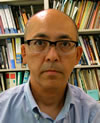Educational and Research Fields
[ Petrology, Mineralogy, and Geochemistry ]
1. What do you learn?You will learn about minerals and their aggregated form, rocks, primarily from the perspectives of chemistry. Through fieldwork and experiments you will learn how to identify minerals and rocks, and perform chemical analysis. You will also learn the components of various rocks that compose a crust. You will deepen your understanding of the generation mechanism of magma at different locations, plate tectonics, crustal movements, their processes at a deep or shallow level, and how these are reflected in the make-up of volcanic rocks.
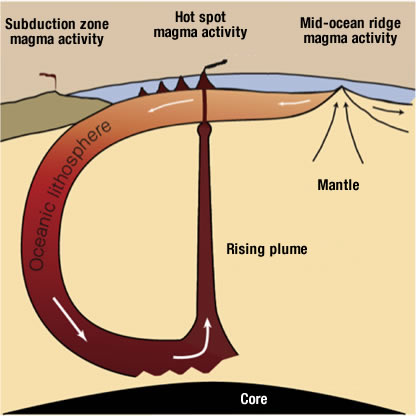
Exhibit: primary locations of magma generation
2. Main Subjects
Polarizing Microscope Lab and Petro/Mineral Genesis (Professor Ryuichi Shinjo)
Students will learn skills to identify and evaluate rocks and minerals using a polarizing microscope. They will also study the elemental portioning between magma and minerals, different chemical compositions of magma in various locations on Earth and the cause, and the magma process inside the crust, among others.
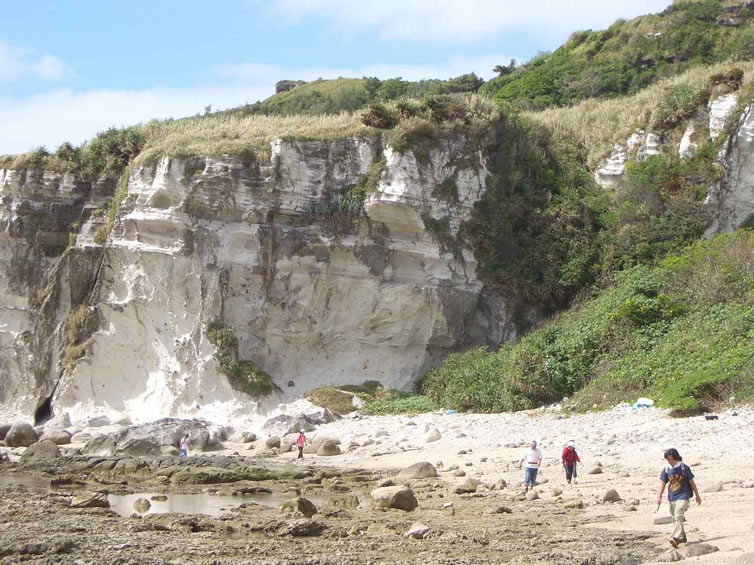
Fieldwork at Aguni Island. The white cliff, made up of pyroclastic flow deposits at the bottom and volcanic ash layer at the top, is simply overwhelming.
3. What type of research is being conducted?
We are collecting rock samples in a broad area from Southern Kyushu to the Ryukyu Arc, and studying the chemical features of mantle substances associated with magma generation, and the characteristics of components supplied by subducting plates, based on the chemical composition of volcanic rocks (microelement concentration as well as Sr-Nd-Pb isotopic compositions).
We are also investigating how the mantle altered along with the formation of troughs by comparing the chemical compositions of the volcanic rocks of the Okinawa trough, which has been in existence from the early days of the formation of the back-arc basin, and the volcanic rocks of the Ryukyu Arc.
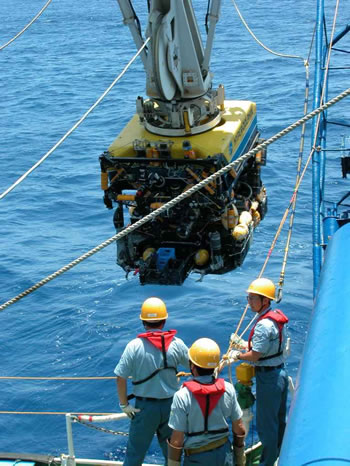
Investigating the Okinawa trough with an unmanned submarine research vessel.
Examples of Graduation Thesis Topics
・Experiment attempting to efficiently remove Boron (B) from volcanic rocks
・Analysis of isotopic ratios of Boron using N-TIMS method
・Quantitative ICP-MS analysis of Boron and HFS elements (Nb, Ta, Zr, Hf) in volcanic rocks
・Sr-Nd-Pb isotopic ratio of basalt from the spreading axis of the Gulf of Eden, Northeast Africa
4. Recent Research Projects
We use precision analysis instruments to analyze the concentration of elements contained in minute amounts in volcanic rocks, and measure their isotopic ratios, in order to uncover the generation mechanism and evolution of magma. We are also involved in research to study the marine environment of the past from fully-grown corals.
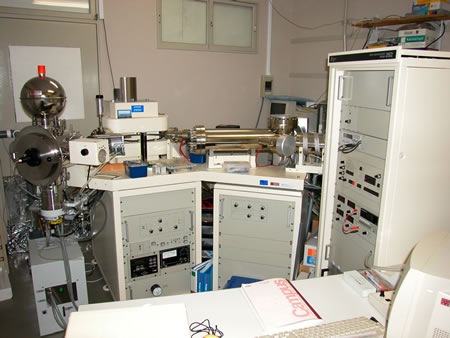
Photo: Instrument to measure isotopic ratio with high precision
Instructor
Professor Ryuichi Shinjo Petrology, Mineralogy, and GeochemistryAnalyzes the microelements in and isotopic ratios of volcanic rocks found in the Ryukyu Arc and on the seafloor in the area to identify the generation mechanism of magma and the chemical features of the origin substance (mantle), and studies how they are associated with the formation of the island arc and seafloor.
